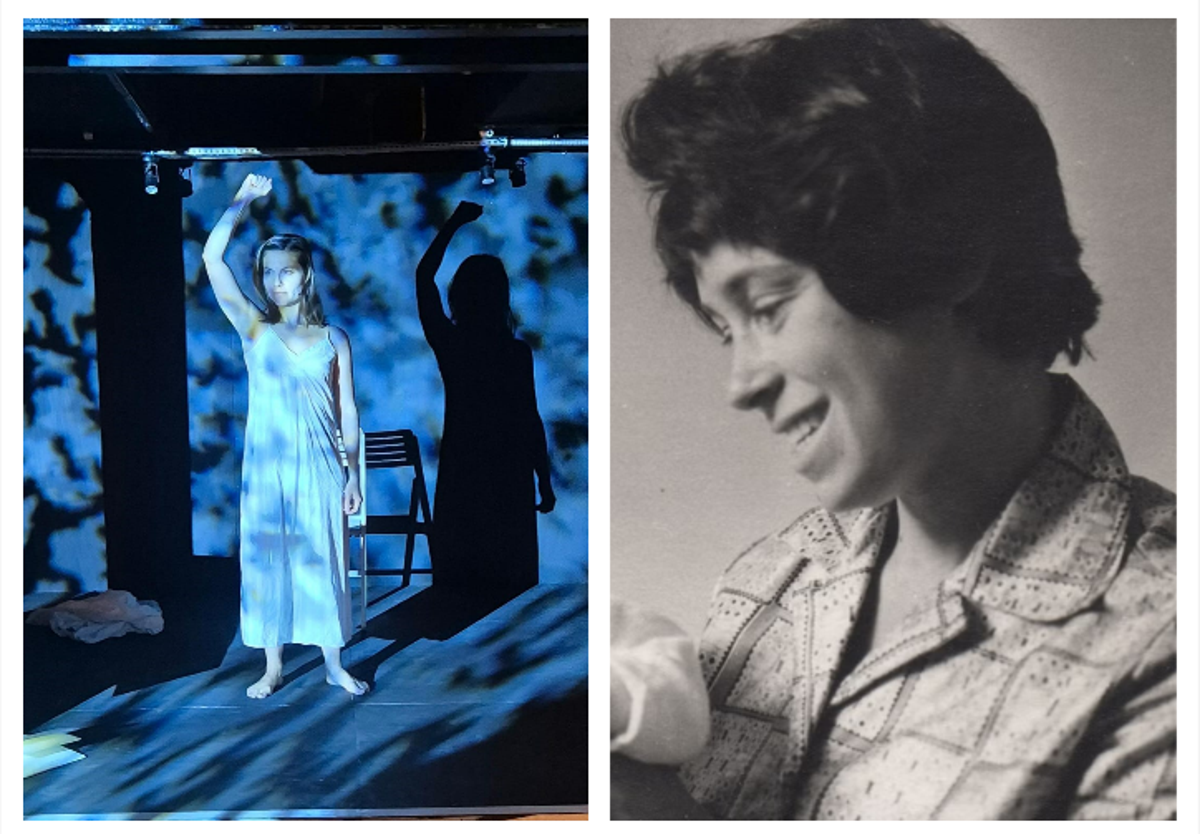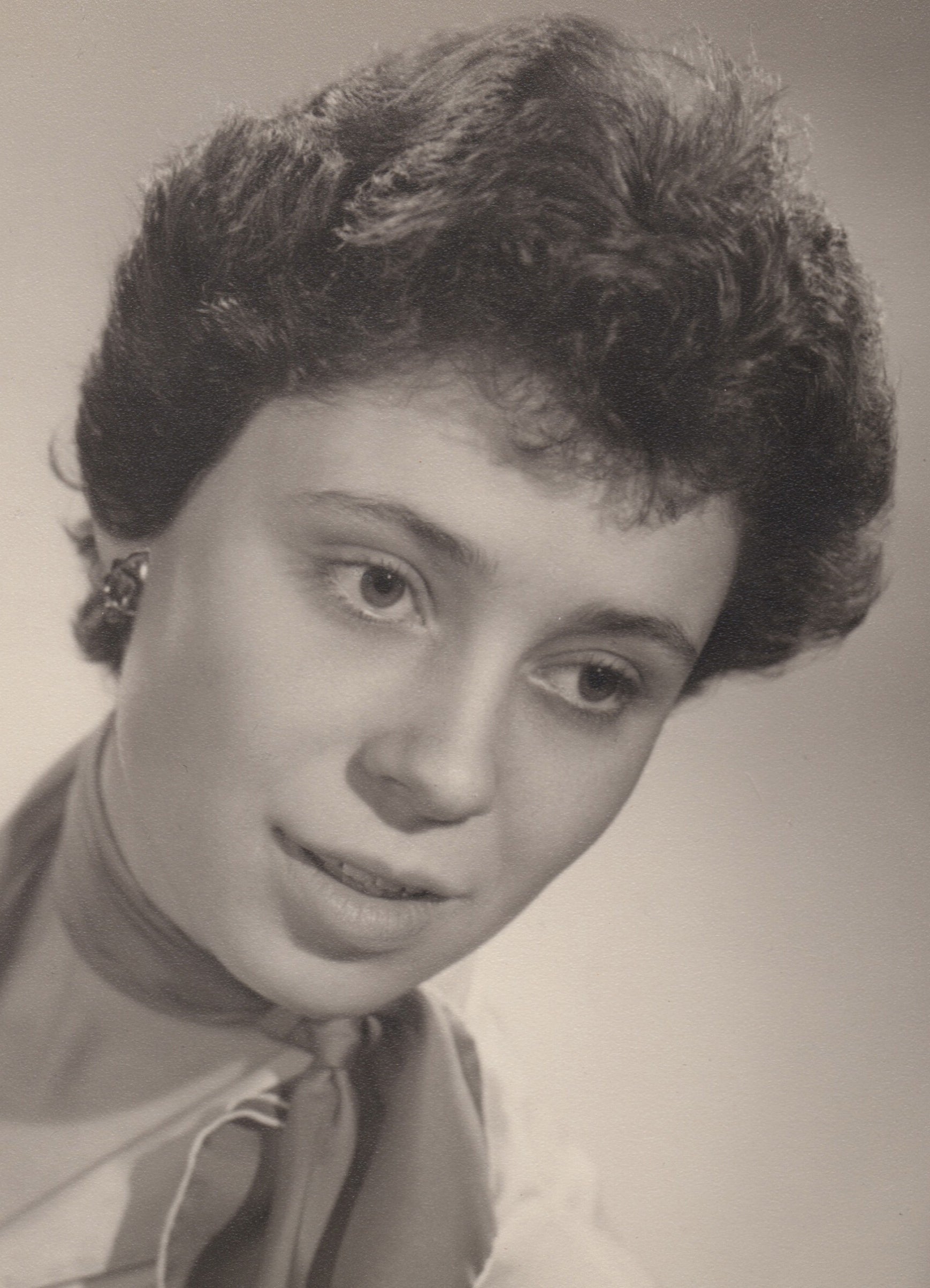
Support truly
independent journalism
Our mission is to deliver unbiased, fact-based reporting that holds power to account and exposes the truth.
Whether $5 or $50, every contribution counts.
Support us to deliver journalism without an agenda.

Louise Thomas
Editor
Until a week ago, I had never heard of Hannah Gavron. Now I know that she was a pioneering feminist and sociology lecturer, whose work spoke to a generation of women desperate to break free of the stifling patriarchal conformity of 1960s Britain. But in some respects, perhaps my lack of awareness wasn’t surprising; her seminal book, The Captive Wife, only gained traction posthumously, having been published a few months after Hannah took her own life at the age of 29. Yet its portrayal of women struggling to balance careers and aspirations alongside motherhood still resonates today.
Sixty years on, the relevance of Hannah’s life and work struck a chord with actor Daisy Boulton when she was given a copy of A Woman on the Edge of Time, a book penned by Hannah’s youngest son, Jeremy. “Her sheer confidence and life force, her joie de vivre, her wanting to see everything and achieve at a high level at a very young age... it felt quite similar to my own childhood and trajectory,” she tells me. “But what resonated were the things that come along from the external world and knock you; the bullets that come. I think that’s what happens to girls and women who are very confident and strong – they take a lot of bullets for being that way. It gave me a weird comfort that I was reading about this in such a raw way about someone, because I felt that rawness about my own experience.”
Boulton, whose credits include Shakespeare in Love in the West End, was so impacted by this lightning bolt of connection that the book inspired her own interpretation. She’ll perform Edge of Time, a one-woman musical depicting Hannah’s life in parallel with that of a modern-day woman who’s also found herself on a precipice and struggling to cope, at this year’s Edinburgh Fringe.

The book that prompted it charts Jeremy Gavron’s quest to discover more about his Palestine-born powerhouse of a mother – both her life and her untimely death when he was just four years old. Through meticulous research, speaking to old friends and acquaintances of Hannah’s and tracking down her letters and diaries, he goes in search of hard answers to hard questions. Who was this woman as a person? Why did his father refuse to discuss her after she died? And why did she end up feeling like suicide was the only option?
It is hard not to be reminded of Sylvia Plath when you read Hannah’s story. Both were born in the 1930s; both married, within a year of one another, in the 1950s; both became mothers and had two children; both were brilliant, whip-smart women, brimming with talent and potential, trapped in a man’s world that constantly demeaned them and threw up barriers. And both ultimately decided to take their own lives, just two years apart – Sylvia at the age of 30, Hannah at 29. Even this was done in a remarkably similar manner – both sealed themselves in and turned on the gas oven at apartments located only a couple of streets away from one another in north London.
But there is one big difference between the two women; one that perhaps, more than anything else, sparked Jeremy’s vigorous pursuit of his mother’s story. Sylvia’s suicide did not come as a shock to those who knew her; Hannah’s did. “The coroner said it was the most confounding case of suicide he’d ever come across,” says Boulton.
The coroner said it was the most confounding case of suicide he’d ever come across
There were very few signs that Hannah was on the verge of taking such devastating action. She had always been bright, precocious and ambitious, studying acting at the Royal Academy of Dramatic Art (Rada) before dropping out to get married at 18 to the future Labour peer and publishing magnate Bob Gavron. She was no typical housewife though, going on to achieve a first-class degree in sociology followed by a PhD.
At the time of her death, she had a job she was passionate about, lecturing at Hornsey College of Arts and Crafts; her first book was soon to be published; she had two young sons whom, according to a suicide note Jeremy only discovered 25 years after the fact, she “loved terribly”. But according to her son’s hypothesis, Hannah was born into the wrong era.
“It is clear to me that this particular moment in history was in some ways toxic for this particular person,” he told The Guardian when his book was first published in 2015. “Hannah was a woman who needed to fulfil herself the way men fulfil themselves. I think the trouble she got into was that she was too far ahead. She left other women behind.” She left men behind, too. Towards the end of her life, she had distanced herself from her husband and was pursuing a doomed affair with a male colleague who was already in a relationship with another man. According to diary entries written by Hannah’s father, TR Fyvel, she was “fighting for her identity as an individual” and couldn’t abide a husband who tried “to dominate” her.

A darker male presence also featured much earlier in her life. When Hannah was still at school, she had what she described as an “affair” with the headmaster, a man Jeremy refers to only as “K” in the book. “I was haunted by K,” he said. “What he did to Hannah may have made her vulnerable at 29. All the psychologists will tell you that.”
Another potential clue to her tortured state of mind lies in her book, an extension of her doctoral thesis, which told the stories of working- and middle-class married women’s lives in Kentish Town. Although The Captive Wife attracted plenty of attention on its release in 1966, and secured Hannah’s place in the canon of mid-century feminists arguing for greater independence and freedom for women, the road to publication was far from straightforward. “That felt like the final set of bullets: there was a lot of objection and blocking to the publishing of her thesis,” says Boulton, who also studied at Rada.
Hannah would likely have revelled in the plaudits her work received had she been alive to see them: The Captive Wife has been called one of the “classic examples of feminist interpretation of housework”, while Hannah herself was dubbed an “optimistic pioneer of modern feminism”. And, though it was published more than 50 years ago, the message still feels startlingly relatable to women trying to juggle childcare and work today. Hannah argued that motherhood stripped women of independence, bringing their ambitions and dreams into conflict with the traditional role they were expected to play as mothers.

“It’s really revealing,” says Boulton, “because all these women were saying, ‘Yes, I love my children, but I also feel like I want to be doing other things as well.’ The overall conclusion was that women feel restrictions on them once they become mothers, and want to work, and aren’t taken seriously. A lot of my friends who are mums now also talk about this feeling of isolation. It still feels very relevant.”
Hannah’s conclusion was that we needed to change the way that society was set up for women, so that it was easier for them to go back to work; she argued that if we created a system whereby life with young children was no longer so utterly different from life without them, motherhood would cease to be a kind of captivity. The changes she was calling for, the opinions she was voicing – they feel as though they could just as easily have been published last week as last century.
But Hannah couldn’t change the society in which she lived, and it seemingly made her question whether she, in fact, was the problem – whether she was the one who needed to change.
You can really see the moments where she is starting to question herself, and it feels like she’s moving away from her North Star
Reading Hannah’s letters, “you get a real insight into her”, says Boulton. “You can really see the moments where she is starting to question herself, and it feels like she’s moving away from her North Star. The overarching theme was this conflict: between conforming to societal expectations and pressures as a woman, and following your wild and true yearning as a woman who is big and bold and bright.”
And so it is that Boulton feels compelled to pick up the baton of Hannah’s story – to channel her predecessor’s energy and outspokenness in a world in which women who are unapologetically themselves can still feel woefully out of place. “It’s tricky to be your full self,” she says. “I’ve had my own struggles throughout life, and I’ve questioned how to be in this world as myself. Being a strong, intelligent woman still doesn’t feel very easy.”
It may not be easy – but, via the re-envisioning of Hannah’s story, Boulton wants to communicate a message to other women: “Don’t stop being you in the world. Never lose the sense of your true self. Be brave enough to be yourself.”
Daisy Boulton is performing ‘Edge of Time’ at Underbelly (Belly Dancer) in Edinburgh as part of the Fringe from 1-25 August 2024







